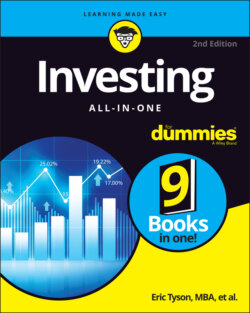Читать книгу Investing All-in-One For Dummies - Eric Tyson - Страница 93
Establishing an emergency reserve
ОглавлениеYou never know what life will bring, so having an accessible reserve of cash to meet unexpected expenses makes good financial sense. If you have generous parents or dear relatives, you can certainly consider using them as your emergency reserve. Just be sure you ask them in advance how they feel about that before you count on receiving funding from them. If you don’t have a financially flush family member, the onus is on you to establish a reserve.
You should have at least three months’ worth of living expenses to as much as 12 months’ worth of living expenses as an emergency reserve (see Chapter 1 in Book 2). Invest this personal-safety-net money in a money market fund (see Chapter 4 in Book 2). You may also be able to borrow against your employer-based retirement account or against your home’s equity, should you find yourself in a bind, but these options are much less desirable.
If you don’t have a financial safety net, you may be forced, under duress, to sell an investment (at a relatively low price) that you’ve worked hard for. And selling some investments, such as real estate, can take time and cost significant money (transaction costs, taxes, and so on).
Riskier investments like stocks aren’t a suitable place to keep your emergency money invested. While stocks historically have returned about 9 percent per year, about one-third of the time, stocks decline in value in a given year, sometimes substantially. Stocks can drop and have dropped 20, 30, or 50 percent or more over relatively short periods of time. Suppose that such a decline coincides with an emergency, such as the loss of your job or a health problem that creates major medical bills. During the 2020 government-mandated economic shutdowns due to the COVID-19 pandemic, remember how (U.S. and most international) stocks dropped more than 30 percent in just a few weeks while millions of people lost their jobs? Your situation may force you to sell at a loss, perhaps a substantial one. Stocks are intended to be a longer-term investment, not an investment that you expect (or need) to sell in the near future.
